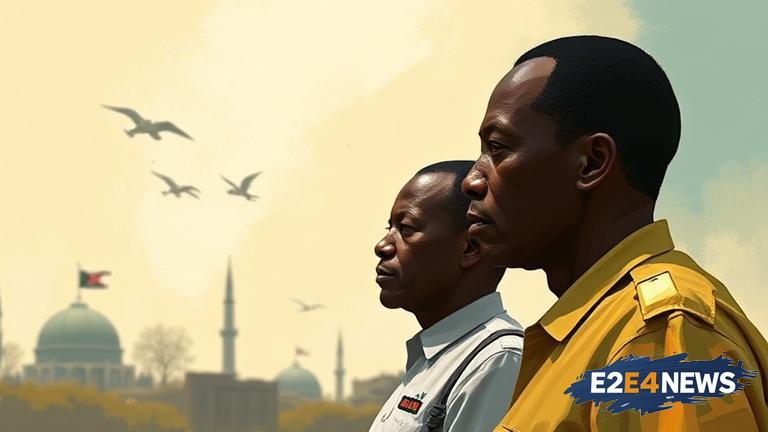The country of South Sudan has been plagued by a sense of entitlement among its leaders, which has hindered the nation’s progress and threatened the freedom dream that its people have been striving for. According to a recent opinion piece, the leadership must rise above this mentality to save the country from further turmoil. The author argues that the current state of affairs is a result of the leaders’ failure to prioritize the needs of the people, instead focusing on their own personal interests. This has led to a lack of accountability, transparency, and good governance, which are essential for the development of any nation. The piece highlights the importance of leaders putting the interests of the people above their own, and working towards creating a better future for all citizens. It also emphasizes the need for the international community to support South Sudan in its efforts to achieve peace and stability. The author notes that the country has been independent for over a decade, but its people are still struggling to enjoy the basic freedoms and rights that they deserve. The leadership’s sense of entitlement has also led to a culture of impunity, where those in power feel that they are above the law and can act with reckless abandon. This has resulted in human rights abuses, corruption, and a general disregard for the rule of law. The opinion piece concludes by urging the leaders of South Sudan to take a long, hard look at themselves and their actions, and to make a conscious effort to change their ways. It also calls on the international community to continue supporting the country, but to do so in a way that promotes accountability and good governance. The author believes that with the right leadership and support, South Sudan can still achieve its freedom dream and become a beacon of hope and prosperity in the region. However, this will require a fundamental shift in the mentality of the leaders, and a commitment to putting the needs of the people first. The piece also highlights the importance of education and awareness in bringing about this change, and in empowering the citizens of South Sudan to demand more from their leaders. Furthermore, it notes that the country’s rich natural resources can be a blessing or a curse, depending on how they are managed. If the leaders can put aside their personal interests and work towards the common good, then the country’s resources can be used to benefit all citizens. On the other hand, if the sense of entitlement continues to prevail, then the resources will only serve to further enrich those in power, while the majority of the population continues to suffer. The author also emphasizes the need for the leaders to be more inclusive and to represent the diverse interests of the South Sudanese people. This includes ensuring that women, youth, and other marginalized groups have a seat at the table and are able to contribute to the decision-making process. Ultimately, the piece concludes that the future of South Sudan is in the hands of its leaders, and that they must rise above their sense of entitlement to save the freedom dream. The international community can play a supporting role, but it is up to the leaders to take the necessary steps to create a better future for their citizens. The author remains hopeful that this can be achieved, but notes that it will require a concerted effort from all stakeholders. In addition to the need for leadership change, the piece also highlights the importance of institutional reform and the establishment of strong, independent institutions that can hold those in power accountable. This includes an independent judiciary, a free press, and a robust civil society. The author believes that with these institutions in place, the country can begin to build a more just and equitable society, where the rights of all citizens are respected and protected. The piece also notes that the international community has a role to play in supporting the development of these institutions, and in providing technical assistance and capacity-building support. However, this support must be provided in a way that respects the sovereignty of South Sudan and allows the country to take ownership of its development. The author concludes by reiterating the need for the leaders of South Sudan to rise above their sense of entitlement and to work towards creating a better future for all citizens. This will require a fundamental shift in their mentality, as well as a commitment to putting the needs of the people first. With the right leadership and support, the author believes that South Sudan can still achieve its freedom dream and become a beacon of hope and prosperity in the region.
